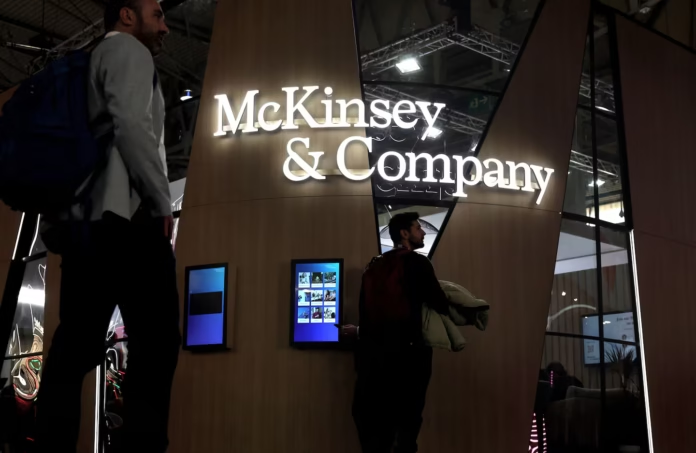The latest McKinsey Global Survey on economic conditions reveals that anticipated changes in trade policy are now seen as a significant disruption to the global economy, rivaling geopolitical instability, which has long been the primary concern among respondents. As we look toward 2025, the implications of these political transitions and policy changes loom large in the minds of business leaders.
For the past three years, concerns about geopolitical instability and conflicts have dominated discussions about potential disruptions to the global economy. However, the latest survey indicates a notable shift in focus.
Executives are now nearly as likely to cite changes in trade policy and relationships as a critical factor that will influence global growth over the next six months.
The proportion of respondents identifying trade policy changes as a top risk has more than doubled since the previous survey, marking the highest level of concern regarding trade since December 2019.
This heightened focus on trade is not confined to a single region; it spans across North America, Europe, Asia-Pacific, and other developing markets. In North America and Greater China, respondents are particularly vocal about the potential impacts of trade-related changes on their economies.
Meanwhile, in Europe and Asia-Pacific, geopolitical instability remains a primary concern, but trade policy changes are increasingly recognized as a significant risk.
Private sector executives are now viewing changes in the trade environment as one of the most pressing threats to their companies’ performance in the coming year.
For the first time since September 2019, trade policy changes rank among the top five risks to company growth. This shift reflects a growing recognition of the interconnectedness of global markets and the potential for trade policies to disrupt established business operations.
Overall, the sentiment among executives regarding the current state of the global economy is more cautious than it was earlier in 2024. While respondents continue to express a preference for improvement over deterioration in economic conditions, the optimism observed in the first quarter of the year has tempered.
The share of respondents reporting improvements in the global economy has decreased, with many indicating that conditions have remained stable rather than improved.
Looking ahead, 44% of respondents still expect the global economy to improve in the next six months, a figure that has remained consistent throughout 2024.
However, the growing uncertainty surrounding interest rates and unemployment rates is evident. Respondents are increasingly inclined to predict higher unemployment in their countries, with nearly half anticipating a rise in joblessness in the months ahead, marking the largest share of such expectations since December 2020.
The trajectory of interest rates has shifted significantly over the past year. Initially, respondents were predominantly expecting interest rates to decrease.
However, expectations have now become more evenly split, with a notable proportion anticipating rate hikes. This shift reflects a growing concern about inflationary pressures and the potential for central banks to respond with tighter monetary policies.
In tandem with these interest rate concerns, executives are increasingly worried about rising unemployment rates. The expectation of higher unemployment is particularly pronounced in Europe, Greater China, and North America, where respondents are most likely to foresee job losses.
This growing apprehension about unemployment is a stark contrast to the more optimistic outlook on company performance and customer demand, which remain relatively stable.
The survey results reveal significant regional variations in economic sentiment. Respondents in Asia-Pacific are notably more optimistic about future improvements compared to their counterparts in Europe, who have become increasingly pessimistic.
This divergence highlights the complex interplay of local economic conditions, political stability, and global market dynamics.
In Greater China, respondents express heightened concerns about trade-related disruptions, while in North America, political transitions are viewed as a critical factor influencing economic prospects.
The increasing focus on political leadership changes reflects the broader context of a year filled with national elections, which are expected to have far-reaching implications for economic policy and stability.
Looking beyond immediate concerns, executives are also contemplating longer-term risks to global growth. Geopolitical instability continues to be perceived as a significant threat, with respondents in all regions identifying it as a primary concern for the next decade.
Additionally, rising inequality and ineffective government policies are emerging as critical issues that could shape the economic landscape in the years to come.
Despite the cautious outlook on economic conditions, private sector respondents maintain a degree of optimism regarding their companies’ performance.
Expectations for profits and customer demand remain stable, though there is a noticeable decline in the likelihood of workforce expansion. This shift suggests that while companies may anticipate steady demand, they are also bracing for potential challenges that could impact their growth trajectories.

